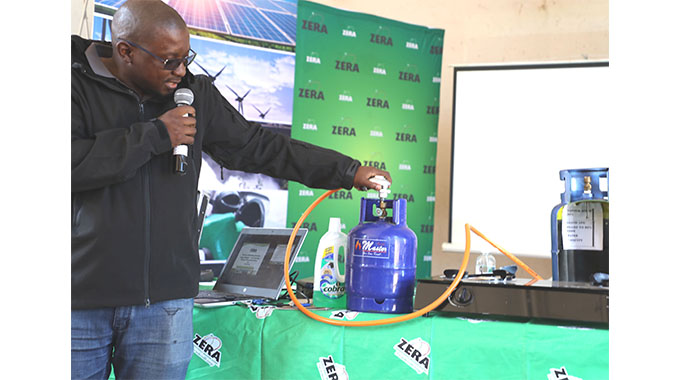Bulilima: Inside Zimbabwe’s HIV hotspot

Thandeka Moyo-Ndlovu in Bulilima
SEVENTY-year-old Mr James Ndebele is a headman in Ndiweni, Bulilima District in Matabeleland South and is among many people living with HIV in the area.
His district, is Zimbabwe’s HIV hotspot.
According to the National Aids Council (Nac) statistics, Bulilima District has the highest HIV prevalence rate at 22,8 percent, with Matabeleland South also accounting for the highest provincial rate at 19,58 percent.

National Aids Council
The national HIV prevalence stands at 11,58 percent.
The district with the lowest prevalence is Mbire in Mashonaland Central at 5,4 percent. Bulilima also accounts for the highest incidence rate at 0,38 which is higher than the national average which stands at 0,24 percent.
In a bid to turn the tide, Headman Ndebele said he now leads a team that mobilises men to stop sexually exploiting women and girls in the area that sits near Plumtree town, the country’s getway to Botswana.
“I have been on ART for 15 years now and I feel I am better placed to be preaching the HIV prevention message since I am already living with HIV. We do talk to our children and warn them daily even at business centres where they frequent but we are disappointed by outsiders who come and deflower our young girls. Some even offer them jobs in their stands only to learn that they are bedding them,” he said.
“This has to stop. I am currently taking care of three grandchildren and their mother, my daughter got pregnant while seeking pleasure like all these youths in our area. We continue to spread the message all over and preach against gender-based violence as we still have men who refuse to use condoms even after spending a year away from their wives.”
Mr Ndebele also takes time to educate his wife, children and community about safer sex, HIV prevention but such knowledge seems to be falling on deaf ears.
He said more awareness programmes are needed in Bulilima especially for men who still need to understand why safer sex is the only way out of new HIV cases.

A villager from KoNdiweni area
“We also call on everyone who moves to Plumtree to stop taking advantage of our vulnerable girls. It’s the outsiders who make this area a hotspot. All men should own up and play their role in keeping our women and girls Aids free. It’s possible if we make use of the available methods like condoms, PrEP (pre-exposure prophylaxis) and PEP (post-exposure prophylaxis).”
Ms Sithembile Nyoni, a village health worker from Bhagani area under Chief Ndiweni, said intergenerational transactional sex is rife hence the high number of people who are HIV-positive.
She said people flock to the area since it’s next to the border.
“We have business centres here where older men lure our girls with money and food in exchange for sex hence the high rate of intergenerational transactional sex. Secondly when couples leave their homes, they normally hire caretakers of herd boys from all over the country including Binga, Lupane, Gwanda and these are the same who sleep around with girls and many at times impregnate them,” she said.

A villager from KoNdiweni area
“We need our police and traditional leaders to intervene and stop this because our children are going to die young. The other challenge is couples who leave their children behind and only worry about sending money back home but do not invest time in building healthy relationships with the children hence the waywardness we see in many of them.”
A villager, Ms Fiona Nkomo from koNdiweni area said the other major challenge is that health institutions in rural Plumtree are far from the reach of many resulting in inaccessible contraception, HIV preventive services and information.
“We have only two village health workers in our area and just one clinic which is 6km away from where I stay. Our girls and even older women lack information on safe sex, contraception which explains why we have so many cases. We need additional health centres and teams that will go to every area and raise awareness so that we prevent the spread of HIV,” she said.

Ms Fiona Nkomo, villager from KoNdiweni area
Ms Nkomo said the other challenge is that most men in the district go to neighbouring countries such as South Africa for long periods and when they return, they refuse to practise safer sex.
“Most men are not around. They go to South Africa and Botswana for more than 12 months and when they come back, they refuse to test or use condoms.
This leaves us at risk as we cannot prove that they had been faithful. Sometimes it’s us women who are promiscuous and it’s difficult for couples to own up and tell the truth in December when they reunite for the festive season,” added Ms Nkomo.
Chronicle also caught up with one of the youths in the area Miss Sindile Ncube who explained the risky sexual behaviours.
She said with parents outside the country and without parental guidance, many youths especially girls find it easy to engage in intercourse with whoever, oblivious of the dangers.

A villager from KoNdiweni area
“I was born and raised in Plumtree and it’s sad to note that it’s easy for us to engage in sex and other behaviours since our parents left in search of greener pastures. Some drop out of school and are easily manipulated by businesspeople who flock to this town and I believe that is how HIV spreads,” she said.
“We have lot of men who come to Plumtree in search of business opportunities and they lure us into sex knowing very well that our parents are not around. Sadly, some of these old men are already infected and that is how we find ourselves with the high incidence rate.”
In an interview Nac national monitoring and evaluation director, Mr Amon Mpofu said Bulilima’s proximity to Botswana and looking for job opportunities in South Africa by locals worsens the situation as both African countries account for one of the highest HIV prevalence rates in the world.

“For starters we need to accept that adolescents are driving our HIV cases and in Bulilima we have discovered that many of these girls have early sexual debuts with infected older men. The older men have high prevalence of HIV and young girls cannot negotiate for safer sex leading to infection,” said Mr Mpofu.
“The district borders Botswana and there is a lot of movement, especially couples in search of employment opportunities. Remember when they leave Zimbabwe, they do not get good and quality health services because some are illegal migrants and become exposed to HIV and other diseases.”
Mr Mpofu said some girls drop out of school due to lack of parental guidance.

“We have had to roll out the DREAMS (Determined, Resilient, Empowered, Aids free, Mentored and Safe) programmes to instill confidence in these young girls so that they take care of themselves. Through Government and donor-unded projects we have taken some back to school and this will help us reduce the rate of HIV,” he said. – @thamamoe.












Comments